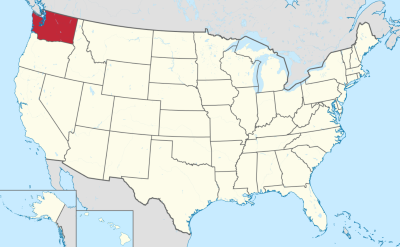Here you’ll find the largest list with Washington hosting reviews. We’ve listed all Washington web hosting providers with our UNCENSORED review and that of users.

Quick Facts
Internet Speed: 9.9 Mbps downlink; 6.1 Mbps uplink
Population: 7.17 million
Internet Coverage: 93% of residents
Main Internet Services: Cable, DSL, Fiber
Main Internet Service Providers: Comcast, CenturyLink, Frontier
Colocation Datacenters: 59
Colocation Market: Developed
Internet in Washington
According to Akamai.com, the average downlink Internet speed in Washington is 9.9 Mbps and the average uplink speed is 6.1 Mbps.
In 2016, the population of Washington was approximately 7.17 million. Over 93% of residents have access to the Internet, especially broadband connections.
Main Internet services provided in Washington are the following:
– Cable – over 90% coverage
– DSL – over 85% coverage
– Fiber – over 25% coverage
Main Internet Service Providers located in Washington are as follows:
– Comcast (Cable) – over 90% availability
– CenturyLink (DSL) – over 85% availability
– Frontier (Fiber) – less than 20% availability
Gigabit Internet in Washington
Gigabit Internet services are scarcely available in Washington, barring Seattle, as reflected by the very low coverage of only 10%. Seattle is one of the most gigabit-ready cities in the country, with gigabit services being provided by CenturyLink and Wave Broadband. Apart from them, other companies such as Comcast have also shown interest.
Colocation Datacenters in Washington
According to datacentermap.com, there are currently 59 colocation datacenters located in Washington. Most datacenters are located in Seattle (41), followed by other smaller cities, such as Spokane (4), Tacoma (3), Bellevue (2), along with many others.
In Seattle, prominent colocation providers include the following:
– Digital Realty
– Level 3 Communications
– Green House Data
– Colocation NorthWest
– Astute Hosting Incorporated
Prominent Colocation Providers – Digital Realty
One of the largest colocation providers established in Washington is Digital Realty. This company owns a 116,000-square-foot facility that serves as the region’s strongest interconnection and colocation datacenter in the local market. The datacenter specializes in providing wholesale and retail colocation services, in addition to reliable disaster recovery and business continuity solutions. Amenities include: utility power capacity of 12,500 KW with redundant utility feeds, UPS power capacity of 3,000 KW, generator power capacity of 3,000 KW, DC Power, along with diverse fiber entries into the building. The facility also features carrier neutrality, with on-site access to many telecommunications companies and other colocation providers, including Abovenet, AT&T, CenturyLink, tw telecom, Zayo, etc.
Prominent Colocation Providers – Level 3 Communications
Another important colocation provider established in Washington is Level 3 Communications. This company operates a 54,000-square-foot facility, with a total colocation space of 18,600 square feet. In addition to wholesale and retail colocation services, the datacenter also provides reliable solutions for disaster recovery and business continuity. Carrier neutrality is ensured by means of on-site access to well over 5 telecommunications companies and other colocation providers.
Colocation Industry in Washington
Washington is a popular destination for colocation services. Customers are attracted primarily to the diversity of colocation providers that are established in the region. Those who are interested in establishing a solid presence in the Northwest will find that the market offers many advantages that cannot be found in the surrounding markets. We can underline the most important advantages as follows:
Advantages for Colocation
– cluster of cloud computing and colocation businesses, especially in the Seattle area;
– much demand for colocation services, driven by fields such as aerospace, financial, healthcare, and technology;
– mild climate, especially in the west, which provides datacenters with hours of free cooling during the year;
– relatively low costs for electricity relative to other markets (13.0 cents per kWh, 3.7% below the nationwide average);
– datacenter-friendly legislation which encourages further private investments;
– very low risk of natural disasters.


